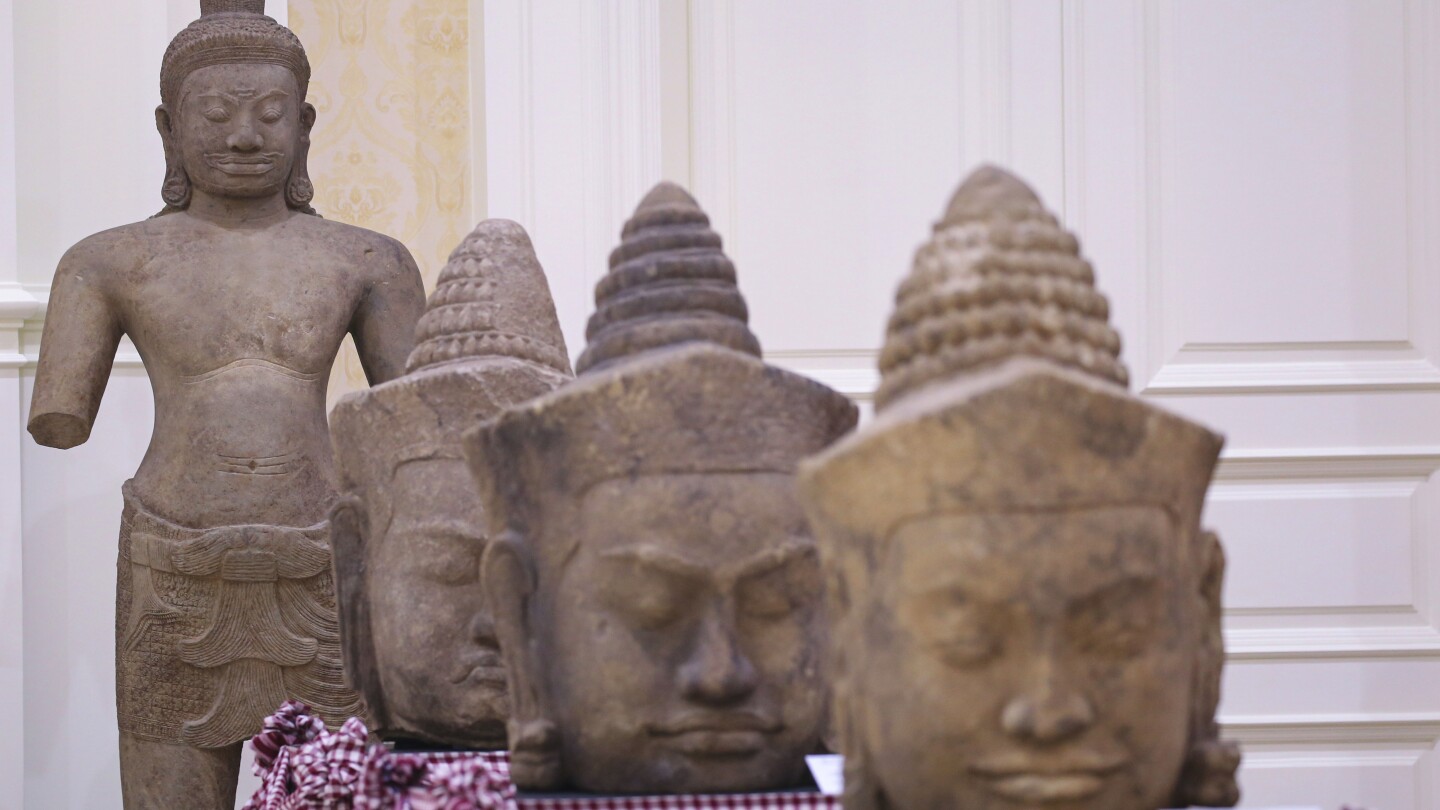PHNOM PENH, Cambodia (AP) — Cambodia’s prime minister on Thursday led a celebration of the return of dozens of precious artifacts from museums and private collectors abroad, and said his government will continue working to bring more home.
Hun Manet, who became prime minister last year when he succeeded his long-serving father Hun Sen, said the 70 returned statues symbolically reunited the Cambodian people with their ancestral souls. The artifacts were displayed at the Peace Palace, the seat of the country’s government.
Many, if not all, the pieces were looted during a long period of civil war and instability while Cambodia was ruled by the brutal communist Khmer Rouge regime in the 1970s.
Cambodia has benefited from a trend in recent decades that has seen the repatriation of art and archaeological treasures taken from their homelands. These include ancient Asian artworks as well as pieces lost or stolen in turmoil in places such as Syria, Iraq and Nazi-occupied Europe.
“A total of 70 Khmer cultural objects have been returned through a range of different processes, including voluntary returns, negotiations, seizures and legal proceedings, from different collections such as from the Lindemann family, Jim Clark, the Metropolitan Museum of Art in New York, and other private collectors in the United States,” the Ministry of Culture and Fine Arts said in a statement.
The statement said the returned items include important Hindu and Buddhist masterpieces from the 9th-to-14th-century Angkor period and earlier, “especially priceless stone statues such as a mythical warrior from the Hindu epic Mahabharata, statues of Shiva and Parvati, and the statue of Ardhanarishvara from the ancient capital of Koh Ker.”
Hun Manet said that from 1996 until last month, 1,098 artifacts had been returned to Cambodia, 571 from private collections and 527 from foreign institutions and governments.
The 70 items displayed Thursday included 14 that arrived from New York’s Metropolitan Museum of Art in early July; the remainder, from private collectors, arrived in late July.
The pieces that came from the New York museum were bought and trafficked by well-known art dealer Douglas Latchford, who was indicted in 2019 for allegedly orchestrating a multiyear scheme to sell looted Cambodian antiquities on the international art market. Latchford, who died the following year, had denied any involvement in smuggling.
A statement from the U.S. Embassy in Cambodia, said the U.S. government “has facilitated the return of over 150 antiquities, including previous returns of the Hindu elephant god Ganesh statue and the 10th century ‘Skanda on a Peacock,’ both on display at the National Museum of Cambodia in Phnom Penh.”
“The United States is a committed and reliable partner for protecting the cultural heritage of Cambodia,” embassy Chargé d’Affaires Bridgette Walker, who attended the ceremony, was quoted saying. “Returning looted artifacts to their rightful home is the right thing to do.”
Cambodian-U.S. relations are generally strained, mainly because of Washington’s criticism of alleged political repression and human rights violations by Cambodia’s government,

